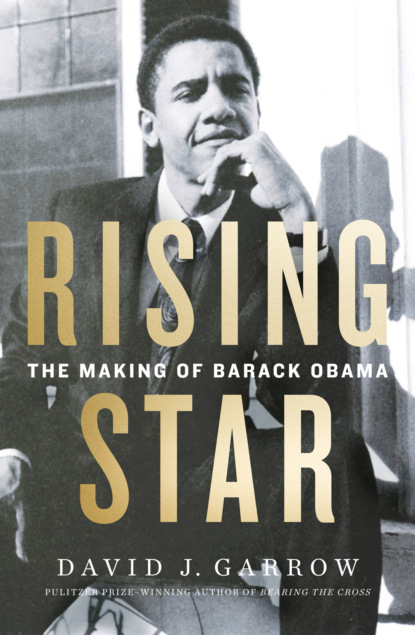По всем вопросам обращайтесь на: info@litportal.ru
(©) 2003-2024.
✖
Rising Star: The Making of Barack Obama
Настройки чтения
Размер шрифта
Высота строк
Поля
Caroline Boss, with whom Barack spoke most days, agrees that “he did have a lot of us who were graduating,” but “he definitely felt the need to transfer,” and not just because his closest friends were leaving. The biggest factor was Obama’s emerging belief that he ought to make more of himself than he felt able to do at Oxy. When Caroline and Barack discussed their families, he always said “that his father was a chief” of some sort among Kenya’s Luo people and that that lineage represented something he should be proud of, “something to live up to.” A quarter century later, Obama would reflect that if “you don’t have a sense of connection to ancestors … you start feeling adrift and … you start maybe devaluing yourself and internalizing” self-doubts. Pride in one’s roots can offer “a more powerful sense of direction going forward.” Obama’s conversations with Boss gave him his first-ever opportunity, far more so than with any friend from Punahou or even the voluble Hasan, to verbalize his developing thoughts about the kind of person he thought he should try to become.
Boss remembers “he basically said, ‘I’ve got to bail. I’ve got to get myself to where it’s cold. I have to be in the library’ ” and someplace where he would have “ ‘access to a black cultural experience that I don’t actually know’ ” and that would “ ‘make me an American and not just this cosmopolitan guy.’ ” As Boss remembers, they “talked about why it was important to be Barack. We talked about why it was important to be a man, and why that meant leaving Oxy because he was just going to hang around being a stupid little boy, smoking cigarettes and … never getting the A that he knows he’s perfectly capable of because you kind of slide.”
Obama also realized that the beer drinking, pot smoking, and cocaine snorting that Oxy, like Punahou, offered him, and that had cemented his reputation as “a hard-core party animal” to some friends, was incompatible with any self-transformation into a more serious student and person. Sim Heninger and Bill Snider believed that Obama’s decision to apply to Columbia sprang from a desire for greater self-discipline, and over a quarter century later Obama would remark, “I think part of the attraction of transferring was it’s hard to remake yourself around people who have known you for a long time.” He knew he was at a “dead end” at Oxy and needed a fresh start, that “I need to connect with something bigger than myself.” So when Barack mailed his transfer application sometime just before Oxy’s spring break began on March 20, at bottom he was making “a conscious decision: I want to grow up.”
For Oxy’s spring term, Barack, along with scores of other students, enrolled in Lawrence Goldyn’s PS 115, Sexual Politics, which met Tuesday and Thursday afternoons. His old Haines Annex friend Paul Anderson took it too and recalls “many times having to stand in the back because there weren’t any chairs left.”
A new regular for the daily conversations in the Cooler was sophomore Alex McNear, who had arrived at Oxy the previous fall as a transfer from Hunter College in New York City, where she lived. By the end of winter term, she and fellow sophomore Tom Grauman had decided to start a literary magazine at Oxy. They announced the launch of Feast in the Oxy newspaper and invited submissions of short stories and poems for spring term.
Obama had composed two poems in David James’s winter term creative writing seminar, and he had presented each in class sometime late in the term. One, a twelve-line composition entitled “Underground,” may be no more comprehensible now than it was in 1981:
Under water grottos, caverns
Filled with apes
That eat figs.
Stepping on the figs
That the apes
Eat, they crunch.
The apes howl, bare
Their fangs, dance,
Tumble in the
Rushing water,
Musty, wet pelts
Glistening in the blue.
The second, titled “Pop,” made enough of an impression on his listeners in March 1981 that at least two of them still recalled that morning three decades later.
Sitting in his seat, a seat broad and broken
In, sprinkled with ashes,
Pop switches channels, takes another
Shot of Seagrams, neat, and asks
What to do with me, a green young man
Who fails to consider the
Flim and flam of the world, since
Things have been easy for me;
I stare hard at his face, a stare
That deflects off his brow;
I’m sure he’s unaware of his
Dark, watery eyes, that
Glance in different directions,
And his slow, unwelcome twitches,
Fail to pass.
I listen, nod,
Listen, open, till I cling to his pale,
Beige T-shirt, yelling,
Yelling in his ears, that hang
With heavy lobes, but he’s still telling
His joke, so I ask why
He’s so unhappy, to which he replies …
But I don’t care anymore, ’cause
He took too damn long, and from
Under my seat, I pull out the
Mirror I’ve been saving; I’m laughing,
Laughing loud, the blood rushing from his face
To mine, as he grows small,
A spot in my brain, something
That may be squeezed out, like a
Watermelon seed between





